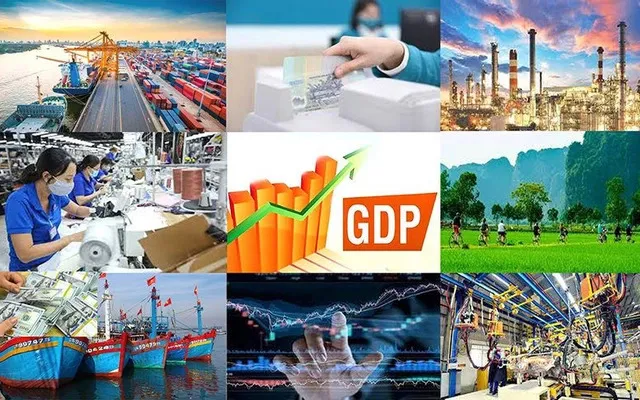
These concerns reflect the complex dynamics shaping Vietnam's economic landscape, where sustained growth is essential for long-term development. Dr. Cung's insights provide valuable perspectives on the current state of the economy and the need for strategic measures to bolster private investment and elevate the nation's economic trajectory.
JOURNALIST: - Sir, what changes will the world experience in 2024, and how will they impact the domestic economy?
Dr. NGUYỄN ĐÌNH CUNG: - Forecasts indicate that the global economy in 2024 will see improvement, albeit not significantly compared to 2023. Despite this positive outlook, potential risks from the world economic environment persist. The world is moving towards a "multi-polar, multi-center" direction, characterized by a slowdown in the processes of international economic integration and globalization, leading to fragmentation, intra-bloc bias, and other challenges.
Notably, emerging trends such as digital transformation, circular economy, sharing economy, and smart economy are shaping the global economic landscape. In high-tech industries, there is a tendency for global supply chains to repatriate and relocate production closer to home or to close allies to manage risks and reduce operating costs. The application of green regulations, standards, and emissions reduction measures is becoming more widespread. Additionally, there is an increasing trend of introducing barriers to trade restrictions, reducing pressure on the global supply chain, and weak recovery in world demand.
These global developments will significantly impact the domestic economy, posing substantial challenges for Vietnamese products and exports, and consequently, negatively affecting domestic production. Despite the challenges of 2023, where operations faced immense pressure, Vietnam has made efforts to gradually improve the economic situation throughout the months and quarters. With a more positive outlook for the world economy in 2024 and the clearer impact of support policies issued in 2023, economic growth is expected to be sustained.
However, it's crucial to note that the term "improved" is used rather than "recovered" when describing Vietnam's economic situation and growth in 2023. Recovery implies returning to the state before the challenges, and although economic growth in 2023 has improved, it has not reached the levels seen in previous years.
- Sir, as we approach the last two years before the economy enters the new planning period in 2026, what are your key points regarding the prospects for the coming years?
- Looking ahead to 2024 and 2025, the last two years of the current planning period, the economic outlook appears challenging. Forecasting more difficulties than advantages, it is anticipated that the GDP growth in 2024 may reach around 5.5%. Achieving the targeted growth of 6.5-7% for the 2021-2025 plan becomes a formidable challenge. As the fourth year of implementing the five-year plan, reaching 6% GDP growth by 2025 implies a necessary increase of 12% to meet the term target. However, Vietnam's historical GDP growth has never reached 10%, with the highest being 9.5% in 1995.
In my view, Vietnam's economic growth is on a downward trajectory, declining rapidly. Over the past decade, growth has decreased by more than 0.5 percentage points every 10 years. This message, although reiterated previously, remains relevant today. There is a looming risk that growth in the next decade may hover around 5.5%. Another critical concern is the remarkably low level of private investment. Traditionally, private investment has seen increases of 13-15% annually, but in 2023, it only rose by 2.7%. Without significant and urgent changes, the nation may continue to grapple with a period of low growth, unable to overcome the middle-income trap. To realize our goals and aspirations, we must reverse this downward trend, maintaining a high growth rate for many years, even decades, to come.
- What is the most crucial factor in achieving the goal for 2024, sir?
- In 2024, the government's emphasis on promoting growth while maintaining macroeconomic stability is a noteworthy departure from previous approaches. Drawing lessons from the past, where priority was consistently given to macroeconomic stability and inflation control, the current strategy involves prioritizing growth within the framework of macroeconomic stability. To achieve this goal, robust reforms must be implemented domestically, with a particular focus on enhancing the business and investment environment. Additionally, leveraging external advantages, such as tapping into the US market and adopting US technology, is critical for development. Overcoming the prevailing challenges of hesitancy and the fear of responsibility is also essential.
The issuance of Resolution 02/NQ-CP on improving the business environment this year signals a pivotal commitment from the government, making it a key priority. The strengthened focus on improving the business environment, compared to previous years, is anticipated to yield significant improvements. This proactive approach is eagerly awaited by the business community, serving as a potent and cost-effective catalyst for growth, while also encouraging private investment.
- Thank you very much.




















